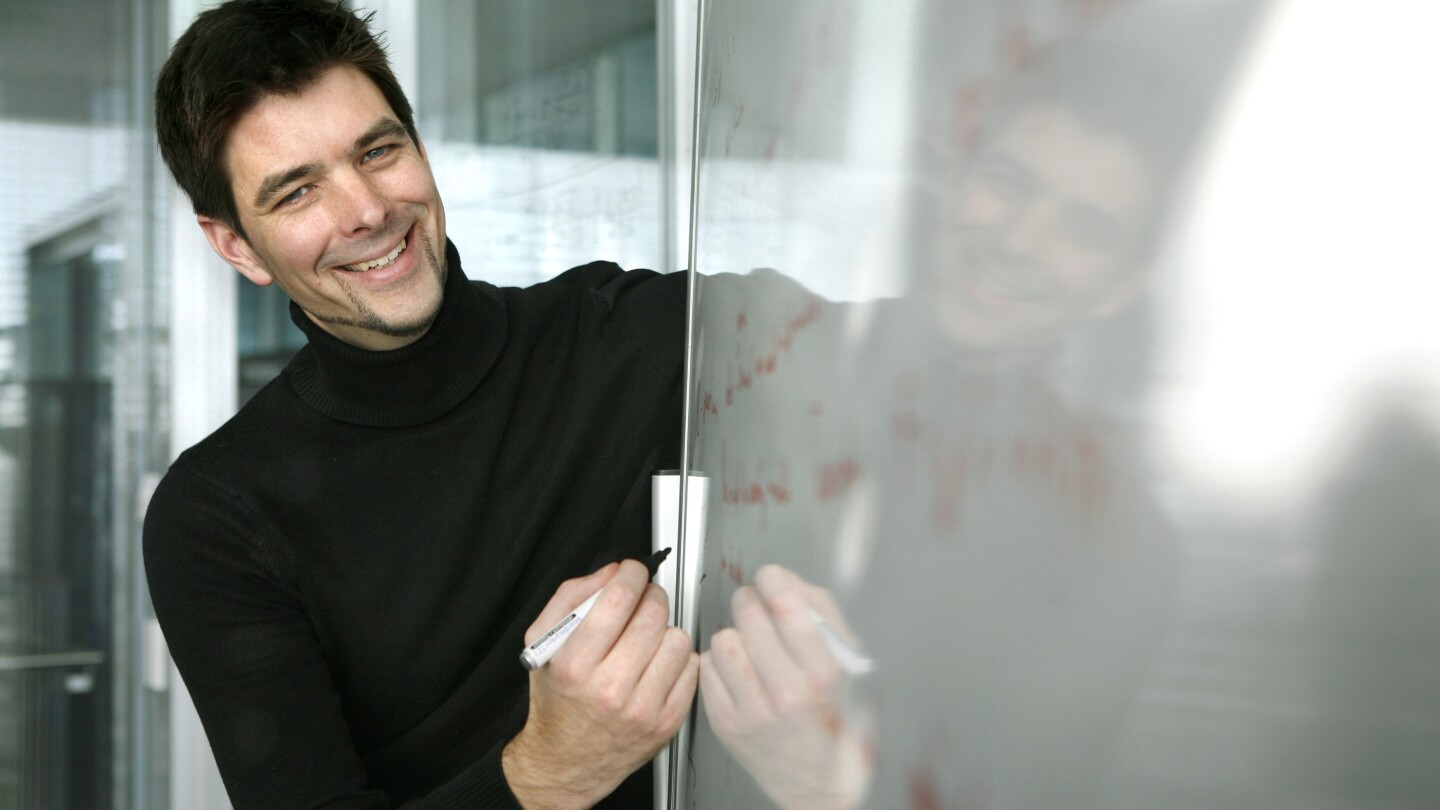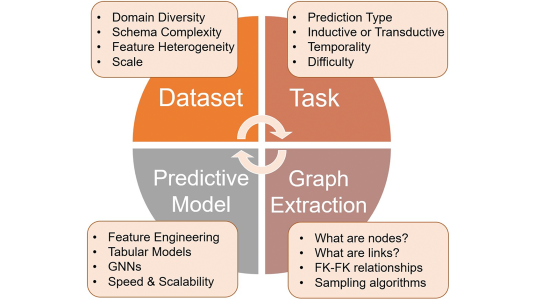Editor’s Note: This interview is an edited and translated version of a story that originally appeared on the Amazon Germany Blog: Day One.
Dr. Matthias Bethge is probably what you could call jack-of-all-trades: Neuroscientist, university professor, founder of two start-ups, coordinator of the Bernstein Centre for Computational Neuroscience in Tübingen, Germany, head of the Tübingen AI (Artificial Intelligence) Centre, co-founder of the German National AI Competition and fellow participant in the ELLIS initiative. He also works as an Amazon Scholar. Bethge prefers to call himself a “protopian”. In this interview, he tells us what this means and why companies like Amazon play an important role in AI research.
Is there an umbrella term for your various activities, and which questions drive you in all these positions?
Peter Dayan, former head of Gatsby Unit at UCL, now director of MPI for Biological Cybernetics in Tübingen, selected as first Alexander von Humboldt AI professor. Very honored to work with Peter @ELLISforEurope on Natural Intelligence: https://t.co/aYPXe4mNxx https://t.co/TIAbBB1NMN
— Matthias Bethge (@MatthiasBethge) July 5, 2020
My research focuses on the question of information processing in the brain, especially how we see and how the world gets into our heads. Roughly summarized, this means that I am working on computers learning in the same way as humans: by forming ever new—in the case of the machine artificial—neuron connections or by increasing the transmission between already connected neurons.
Over the last decade, machine learning has brought about very great progress in the development of artificial intelligence. Research in machine learning is no longer limited to basic academic considerations, but has begun to fundamentally change our economy and society worldwide. As a researcher in this field, I feel obliged to take care of the social impact of my research.
How do you manage to keep track of these effects?
You can’t do it alone. That’s why I am strongly involved in the ELLIS initiative. ELLIS stands for “European Laboratory for Learning and Intelligent Systems”. The initiative was founded about two years ago. It includes my esteemed Amazon Scholar colleague and director of the Max Planck Institute for Intelligent Systems in Tübingen, Bernhard Schölkopf, and many other top researchers. With the ELLIS initiative, we are trying to develop a European ecosystem that will attract the best talent to Europe, and provide a concept and the best possible conditions for innovative scientific teams, start-ups and non-profit enterprises to emerge. Europe needs to keep up with trailblazers such as the U.S. and China on key AI technology.
Great example for the spirit of #ELLIS_EU breaking new ground for research excellence in Europe: @nuriaoliver is planning an outside-the-box AI unit to attract top machine learning researchers to Alicante: https://t.co/kvzdjsowFA pic.twitter.com/bljpfZMxjT
— Matthias Bethge (@MatthiasBethge) November 12, 2019
Are computers already as good at learning as the human brain?
No. The brain is much better at drawing the right conclusions from very few experiences, which can bring about far-reaching behavioral changes. Machine learning usually requires very large amounts of data. In contrast to humans, however, a computer can evaluate much more data. If large amounts of data are available, it is therefore already possible today for computers to exceed human performance. Together with the neuroscientist Peter Dayan (Max Planck Institute for Biological Cybernetics, Tübingen) and the scientist Y-Lan Boureau (Facebook AI Research, New York), I run an ELLIS fellowship program in which we meet twice a year with leading researchers to exchange new ideas on how previously not understood aspects of natural intelligence can be artificially simulated.
Which tasks can a system that learns in this way take over in practice? Can you give us a few use cases?
Pattern recognition tasks work particularly easily. For example, facial or music recognition, medical image diagnosis, or the prediction of purchase behavior.
You founded two start-ups: DeepArt and Layer 7. How do you put your research into practice there?
In 2015, we developed a new process that uses neural networks to convert any photos into the style of art images. In order to make this process accessible to a broad public, we founded DeepArt in early 2016. In mid-2018, we founded Layer 7 as another spin-off from my research group to deploy very good researchers in machine learning as advisors for companies.
You have been an Amazon Scholar for more than a year. What do you work on specifically?
Together with Bernhard Schölkopf, Thomas Brox, Peter Gehler, and Yasser Jadidi, I am building up the AWS Lablet there. This Lablet brings together top researchers in machine learning to work on particularly challenging questions. Our main goal so far is to advance unsupervised learning and to teach machines as general an understanding of objects as possible.
What do you like about working at Amazon?
I think that Amazon is a very important enrichment for the Cyber Valley initiative. The transfer of research results into the economy is a big challenge. Universities largely lack the necessary infrastructure and resources to develop marketable products and bear the risk of such developments. On the one hand, I can learn a lot there. On the other hand, Amazon is a very important component in the development of a rich ecosystem, where there is a close exchange between basic research and industry, and there are exciting non-academic positions for our doctoral students.
You call yourself a “protopian”. What is that and why are you one?
A “protopian” is someone who derives his actions from the goal of making the world as livable as possible—in small steps. In contrast to the “utopian”, the protopian does not commit himself to a particularly desirable, but often unattainable goal. I do not have any utopian ideas about what AI can and should achieve, but I do have strong intuitions about what improvements can be made incrementally.





